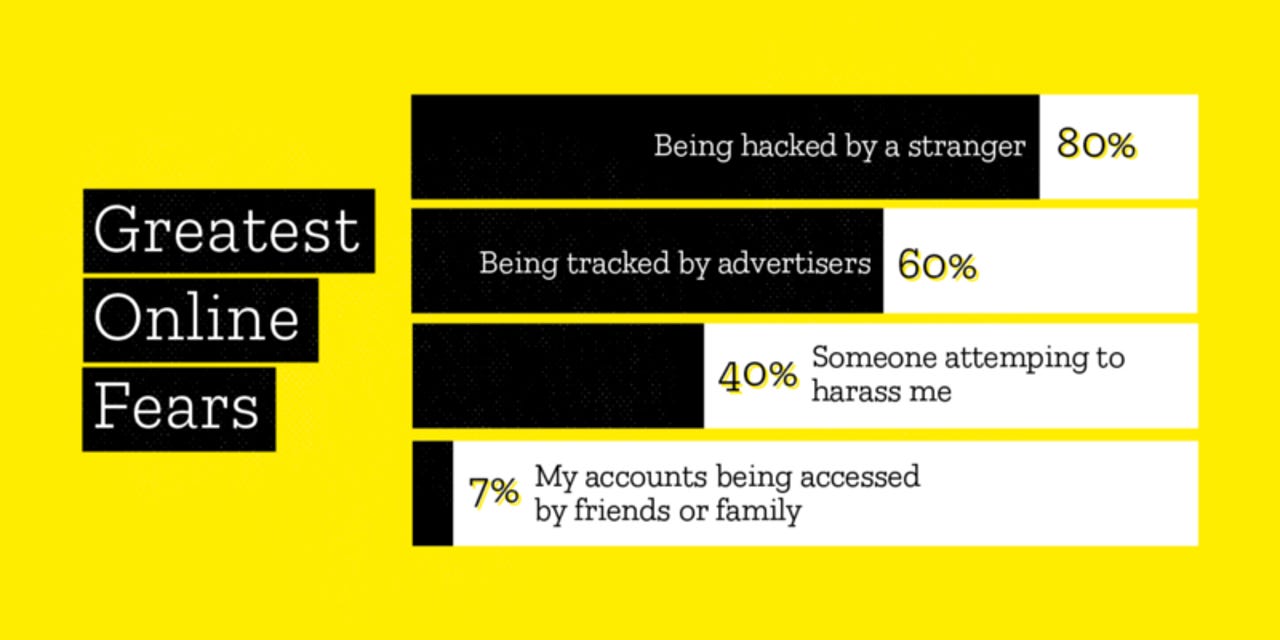Mozilla: Everyone's scared of hackers but clueless about fending them off


People with strong knowledge of online privacy worry most about being tracked by state actors such as governments and law enforcement.
According to Firefox maker Mozilla, we're nearly all afraid of hackers, but few of us feel we can protect ourselves from them.
The non-profit's survey of 30,000 people found internet users' confidence is extremely low when it comes to privacy and security. The survey found that 90 percent of people are unsure how to protect themselves online, while 11.5 percent feel they know nothing about security.
Yet, the threat of hackers looms large in respondents' minds, with 80 percent admitting they fear being hacked by a stranger. Additionally, 61 percent are worried about being tracked online by advertisers.
That users feel helpless against hackers perhaps shouldn't be that surprising. Major data breaches at LinkedIn, Yahoo, and other organizations have shown that passwords may have been traded among hackers for years before we knew anything was wrong. And these firms had the benefit of hiring cybersecurity experts to protect their systems.
But users can take some steps toward improving their personal online privacy and security. As Mozilla highlights in a post on Medium, in the physical world people routinely lock their doors and hide their wallets and they could, even they don't, apply the same vigilance online.
"We recycle passwords, we run outdated software and we volunteer personal information for a free coupon," Mozilla says.
"If this same carelessness carried over to the physical world, our wallets might be a lot lighter. And our neighbors might know a lot more about us than we want."
It advises users to update their apps and software regularly, and use random passwords that are unique to each site. It also points to additional resources for helping users stay safe online. Its Don't Get Pwned post, for example, recommends using two-factor authentication and password managers.
Mozilla says most people are "pretty fuzzy" about the way encryption works. Some 65 percent say they know a little about encryption but wish they knew more, while almost third said they know almost nothing about it. Those who claim to know more about encryption also report feeling more secure online, according to Mozilla.
People are also being overwhelmed by more connected devices in their lives. The survey found that 60 percent of respondents have more than four devices connected to the internet, and that the more devices a person owns, the less control they feel they have over their privacy.
Encouragingly, Mozilla did find that two-thirds of respondents would be willing to take an online course to protect themselves online, and 95 percent said they would commit to continual learning about how to protect themselves online.